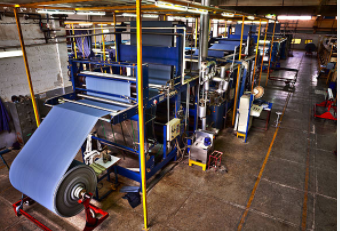

If you’re a denim aficionado who cares about the environment, you’ve always wondered about the sustainability of denim fibre. JD Institute Of Fashion Technology, one of the best institutes, especially when it comes to fashion designing, is here with a deep analysis of sustainability or innovation regarding denim fibre. The best sustainable jeans will make you look beautiful while still being environmentally friendly. Bringing modern designs and materials to the forefront of an industry where tastes are constantly evolving can seem difficult, but sustainability is not a barrier to beauty.
There has never been a better time to commit to sustainable fashion than now, with climate change on the horizon. The garment industry is constantly being scrutinised, with organic cotton and denim being examined to determine how natural they are.
More and more brands are paying closer attention to how this blue canvas is made, ensuring that it is not just environmentally friendly but also affordable. Thousands of litres of water are used to make a single pair of jeans, with chemical-laden dyes polluting the environment. Consumers are more mindful of their environmental impact and are insisting that businesses pay more attention to it. There is a trend for a circular economy, with the aim of making the blue denim canvas “greener.”
Through recovering and reassembling antique clothes, brands like ReDone, based in Los Angeles, brings new life to old styles that have been discarded.
The origin of the fibres used in denim cloth, whether natural, organic, or synthetic, will determine its long-term viability.
Natural fibres are the most environmentally friendly, and their effect on the climate varies depending on the manufacturing methods used. Synthetic fabrics are the least organic and environmentally friendly, and they produce the most carbon dioxide. Artificial fibres are in the centre of the spectrum, with concerns that cellulose fibres are made from trees, which may result in deforestation.
Development practises must also be addressed when determining how sustainable denim is. With organic cotton at the top of the line, natural fabrics will make the perfect eco denim.
We can’t talk about denim’s sustainability without including Levi’s, who has become a trailblazer in the quest for new manufacturing approaches for their iconic jeans. Levi’s has a number of campaigns that promote and demonstrate how durable denim cloth can be when environmentally responsible standards are practised. Levi’s is one of the most environmentally friendly denim brands.
Denim that is both organic and Fair Trade accredited is what Madewell is all about. They work with the Better Cotton Initiative (BCI) to boost global cotton farming and use organic cotton in some of their denim. They also use recycled polyester and viscose, a wood-derived cellulose fibre. Madewell is one of the most environmentally friendly denim brands.
Madewell has released a Fair Trade denim line in collaboration with Fair Trade USA, and they want to create a sustainable world for migrants by promoting jobs with integrity. The scheme includes essentials such as equal pay, safe workplace conditions, and maternity leave. For any accredited Fair Trade commodity Madewell produces, the company donates a portion of the proceeds to an economic development project. People who work for Madewell are in charge of the fund. Their collaboration with the Better Cotton Initiative (BCI) to combine cotton grown under strict conditions aims to increase grower and worker livelihoods while also protecting the environment.
Everlane was established in 2010 in the United States. Their jeans are manufactured at the LEED-certified Saitex denim plant. The factory recycles 98 percent of the water it uses in a special closed structure, and the water is safe to drink. It ensures that a pair of denim jeans are made with just 0.4 litres of water. Everlane, one of the biggest sustainable jeans brands, offers sustainable denim jeans.
If you’re somehow not convinced that denim can be sustainable, look no further than Everlane. Saitex gets its electricity from renewable energies. Solar energy, which is green, is used in the plant, which has resulted in a significant reduction in carbon dioxide emissions.
If you want to pursue a career in fashion designing, education can play an important role in your future. JD Institute Of Fashion Technology is the ideal location for you because it offers many types of fashion design courses and other courses, many of which are industry-based so that students understand how the market works and are prepared for the real world ahead of time. JD Institute shares a vision of having the best services, infrastructure, and so on so that no external influence stands in the way of success. JD Institute has earned numerous tokens of appreciation for their unique approach or excellent contribution to education, such as the International glory award and others. The applicants are chosen by a professionally drafted general aptitude test or GAT, which will assist the institute in assessing the candidates’ artistic or imaginative talents, making it more qualitative, and a personal interview. Now is the time to Enroll for a promising future!